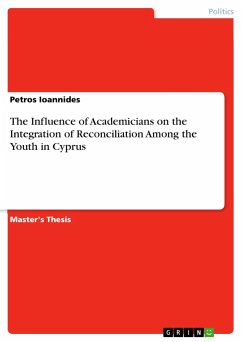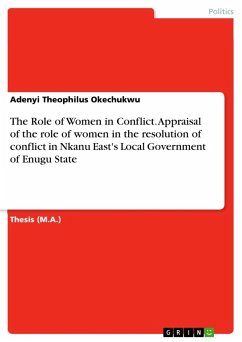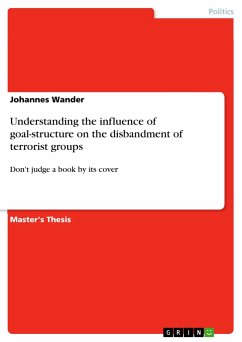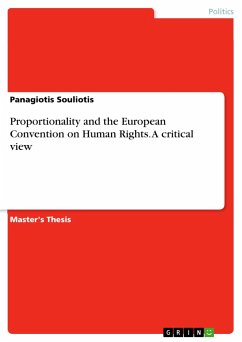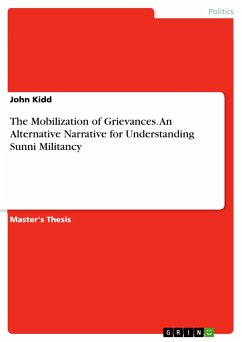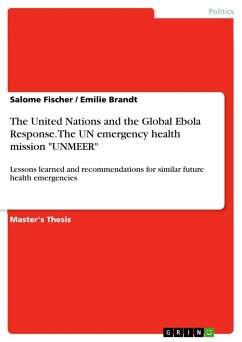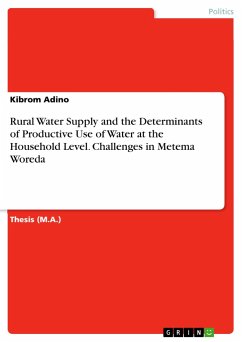Master's Thesis from the year 2015 in the subject Politics - International Politics - Topic: Peace and Conflict Studies, Security, grade: 3.28, Columbia Universität New York (School of Professional Studies), course: Master of Science in Negotiation and Conflict Resolution, Emphasis in Ombuds Practice, language: English, abstract: Disagreements, struggles and other countless forms of conflict, in their sketchiest intelligence and appreciation, are critical fragments of individual anthropological continuation. The master thesis investigates, studies and exposes actualities and concerns in one of the several tragedies of violent conflict that occurred in the decade between 1967-1977. The divergence amongst the Greek-speaking and Turkish-speaking Cypriots is unmoving merely and incompletely 'resolute' nowadays.The island of Cyprus has a lengthy and prolonged past of indigenous forcefulness and chaos. Through the preceding fifty years, the country has experienced uncertainty, settler and following-settler struggles, conflicting domestic nationalism, violence as well as armed conflict among several of the foremost cultural clusters, invasion, ethnic separation, and vast numbers of refugees. This is what characterizes the 'Cyprus conflict' after the establishment of the Republic of Cyprus in 1960 and the critical time of 1974 as explained by the Greek-speaking Cypriot.The exploration of the core diverging disputes amongst Turkish-speaking and Greek speaking Cypriots in this section validates that, their topographical discrimination and isolation, from the time of the initiation of the conflict and its occurrences, is not the unhealthiest happening arising. The mental and emotional estrangement between the conflicting 'societies', furthermost noticeable amongst the young citizens is demonstrated in every single phase of collective and constitutional existence. Uncertainties deep rooted to their insecurity on survival, forfeiture of confidence and anticipation of perseverance, nationalism oppression, unattended chronological accusations in addition to unsettled sufferings and distresses are continuously existent.The central exploration view designed and preserved even further diagnostically and methodically in the literature review, is encircling advanced degree culture and its prospect of whether it can undertake and exploit analytical responsibility and function in conflict resolution and settlement in the island of Cyprus revealed as an aftereffect of the structured - and with numerous paths - reconciliation determination in the country.

